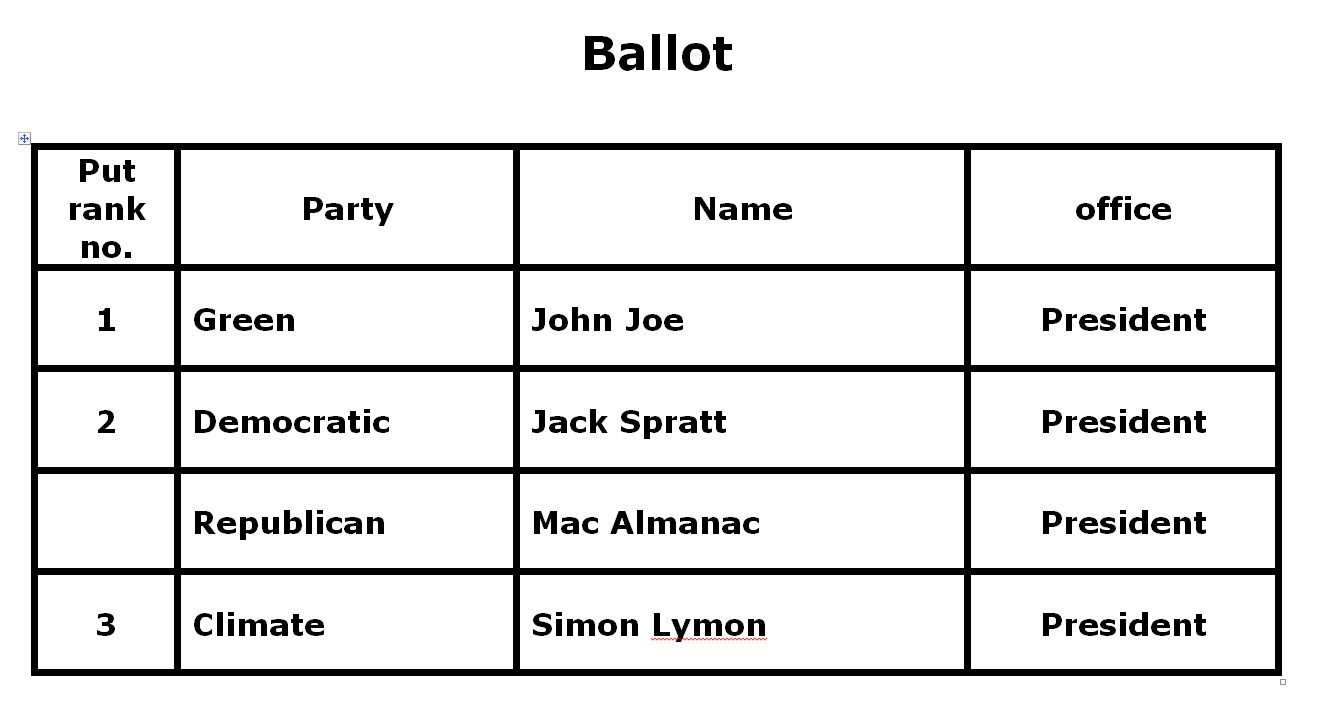Mariner apologizes for not making clear the manner by which a candidate wins an election in ranked voting. A straightforward demonstration follows.
To keep matters simple, an even 1,000 citizens cast their vote. That means for a candidate to win, they must garner at least 501 votes. In yesterday’s post, a ballot is shown with the ranking one voter selected.

Once all the ballots have been received, the election officials total the votes first by those with a ‘1’ ranking to see if anyone obtained at least 501 votes. It is conceivable that one candidate is so popular that they garnered enough ‘1’ votes to reach the minimum of 501 but if not, for each candidate, the officials add in all the ‘2’ votes – again to see if any candidate, with a combination of 1st and 2nd – obtained 501 or more votes. Typically, 1st and 2nd votes would total at least 501 votes. In close votes it may be necessary to add in all the ranks to achieve a majority. Below is the final score for each candidate as they were ranked in each voter’s ballot.

Typically, there are the two dominant parties who accumulate the largest number of votes so it is likely that by combining the first two ranks, some candidate likely will have won. Note, however, that the candidate who won in this example could only have done so by adding together three ranked votes – ‘1’ plus ‘2’ plus ’3’.
That’s how it works but the beauty is in the power of broader representation. The Green party candidate received 200 votes, nothing to sneeze at in local politics. Further, Jack Spratt knows he must depend on Green party values to stay elected. In this respect, mariner believes policy influence is spread out from Washington, D.C.
Ancient Mariner
